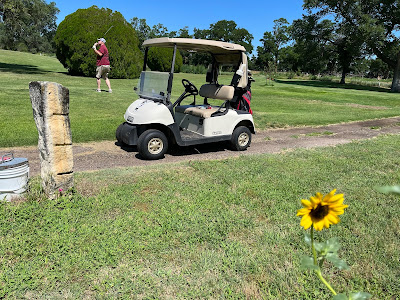My friend, Pam, posted a poem by Nicolette Sowder last week. It really spoke to me and my philosophy about finding beauty in everyday life:
May we raise children who love the unloved things
By Nicolette Sowder
May we raise children
who love the unloved things -
the dandelion, the worms
and spiderlings.
Children who sense
the rose needs the thorn
and run into rain-swept days
the same way
they turn towards sun.
And when they're grown
and someone has to speak
for those who have no voice,
may they draw upon that wilder bond,
those days of
tending tender things.
She mentioned her husband giving a combine ride to their four grandchildren. That's a familiar scene for us, too - at least, until this year. Here's what she had to say:
They worried over every butterfly, bug and sunflower that the combine might have to devour to get the precious kernels of drought-stricken wheat this year. I missed out on this as there clearly was no room for one more body in that crowded cab. But, I can imagine their commands to “wait, steer clear, turn around” in order to save what they see as tiny, beautiful and valued.
We were at the Stafford golf course during the holiday weekend. It was the perfect day. I had my favorite golfer with me. It was not too hot and no one else on the course. It was verdant green against a cloud-splattered bright blue sky after some rains. I had a great book to read.
 |
| I recommend this book: "Drowning" by T.J. Newman. I also liked her first book, "Falling." They are excellent if you like thrillers! |
I remembered that poem as we drove from tee to tee on the golf course. The groundskeeper at the course chooses to go around the purple poppy mallows that bloom wild and so abundantly this time of year in the course's rough.
Some might see them as weeds. He sees the little purplish-pink blooms and doesn't want to chomp them through the mower. I don't know what the golf course board thinks about his mowing decisions. But I can't help but think that he has just a little bit of childlike wonder in seeing those "weeds" as flowers.
Just like the poem reminds us, perhaps the world could be a better place if we tended "the tender things" - including the people who inhabit it.



.jpg)

No comments:
Post a Comment